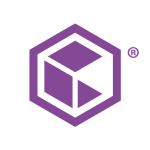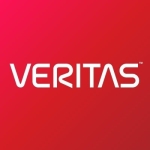What is our primary use case?
We are primarily using Cohesity for Backup and Recovery (and compliance). We can use it for "basic" disaster recovery, but we are looking to implement CloudSpin and a cloud Cohesity node in Azure for replication and to bring our DR to the next level.
This will allow us to collapse our secondary/DR datacentre, retire aging hardware (avoiding maintenance costs and/or new equipment costs), and move to a cloud disaster recovery solution.
Our old backup and recovery solution was much too big for our organization, whereas Cohesity is powerful and simple!
How has it helped my organization?
I would say one of the most impressive features of Cohesity is the ease of implementation. During our Proof of Concept, I had the virtual edition set up in our VMware environment, licensed, and backing up virtual machines within an hour.
When we installed the physical nodes as part of the production implementation, the longest part of that process was unboxing, racking, and cabling the hardware. Bringing up the cluster was dead simple and having done the Proof of Concept previously, I was able to get all of my sources added very quickly.
Cohesity is extremely easy to use and intuitive. I have done a couple of demos of the product to my team and they are all very impressed with the GUI and how it works. The indexing/searchability that Cohesity provides has also been a huge hit!
What is most valuable?
The indexed search is amazing! It has already proved itself useful when trying to help our end users find files that could be in any number of different locations on our NAS. We're able to find and recover them quickly, which saves our end users time and the company, money!
Dev/Test is something we are also playing with and has some really cool applications.
Being able to create a NFS mount using a Cohesity view has been really useful.
We've been using O365 backups for Exchange Online and backing up the mailboxes on-premises.
What needs improvement?
We're still waiting for the ability to backup SharePoint Online & OneDrive but have been told it is coming soon. As we move towards a "cloud-first" implementation strategy for new solutions, these types of backup/recovery features will become more important.
We have Oracle databases running on Linux servers in our environment and we have found the Oracle backups were quite complex to setup. Simplifying the backup and recovery of Oracle would go a long way.
NAS incremental backup performance is a bit slow. This has apparently been fixed in version 6.4.0, but we waiting for it to go LTS before upgrading.
For how long have I used the solution?
We implemented Cohesity in October 2019, so we've been using it for about four months. We completed a Proof of Concept with Cohesity over the summer of 2019, which solidified our decision to go with their solution.
What do I think about the stability of the solution?
We've already had a power failure to the Cohesity cluster where a UPS went down. In our environment, we have 2 UPSs (an A-side and a B-side) ... we lost the A-Side, but because the Cohesity chassis has dual power supplies that support the same power backplane in the chassis, all 3 nodes of our cluster stayed up. The Cohesity cluster also has a call-home feature that generated a problem ticket with Cohesity support automatically, which emailed our team that a power supply issue had been detected.
Upgrades are also very easy; in a multi-node cluster, the upgrade process takes one node out at a time and upgrades it before moving on to the next node. No downtime required.
What do I think about the scalability of the solution?
The scalability is one of the best features. Basically, you just need to add hardware and licensing to expand the cluster.
How are customer service and technical support?
Customer support from our local team has been great. There is lots of expertise and a general willingness to help. Cohesity support has been great and they are often proactive about creating service tickets if they notice an error on the cluster.
Which solution did I use previously and why did I switch?
Cohesity is simple to install, configure, and maintain. Our old system was very complex and did not integrate well with cloud backups.
How was the initial setup?
Setup of both the PoC and physical cluster were very simple. The most complex part of the physical setup was finding someone to help me lift it into the rack!
What was our ROI?
We have realized substantial cost savings over our old solution, as well as avoiding expenses related to aging hardware such as maintenance and possible replacement.
Which other solutions did I evaluate?
We evaluated Microsoft Backup and Rubrik prior to choosing Cohesity.
What other advice do I have?
My advice is to set up a Proof of Concept with Cohesity. They are more than accommodating and basically treat you like a licensed customer. Any issues you do encounter get fixed during a PoC, so make sure to document them well because it makes the production implementation of Cohesity dead simple.
Just try it ... and be prepared to like it. Make sure to have a set list of scenarios to test.
Which deployment model are you using for this solution?
On-premises
Disclosure: My company does not have a business relationship with this vendor other than being a customer.














